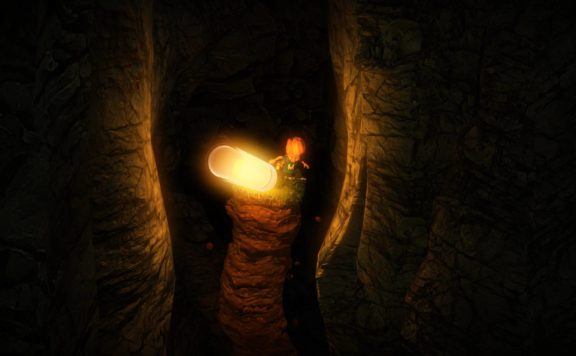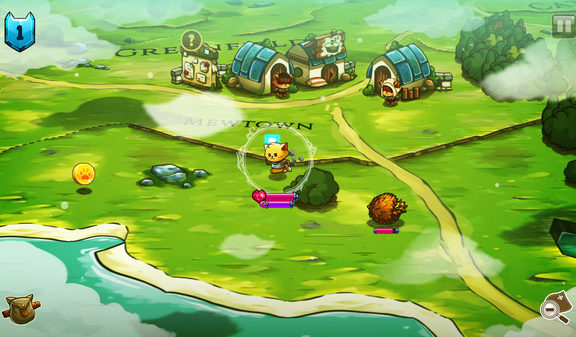I’ll admit straight up that Another Lost Phone: Laura’s Story has been a difficult game to write a substantive review for. It’s not that it’s lacking in content – far from it. It’s not even that it flies in the face of typical games these days with regard to over-the-top graphics and complex gameplay. It’s more due to the fact that Laura’s Story forces the player to delve into realms that have deep social implications as well as the simple notion that we are literally invading this person’s privacy by scouring their phone. This is our Another Lost Phone: Laura’s Story review.
The game starts with the player finding Laura’s abandoned phone. Of course, in real life, most of us would eschew snooping through someone’s phone, but if we did that here, there wouldn’t be much of a game, would there? At any rate, the player starts going through all of the apps on the phone – at least the ones that are currently open from the start. We learn who Laura is by reading text messages and emails, looking at photos, diving into her contacts and otherwise rummaging through the apps on the phone.
It’s not all tap and open either. Along the way through the game, I was faced with simple (for the most part) puzzles that require some thinking and further exploration of the apps on Laura’s phone to help solve them. For instance, at the start, I found that several apps were closed unless I had an active online connection. There is wifi available nearby, but I had to figure out what the password was by digging into Laura’s phone to find where she wrote down the information. The puzzles aren’t overly difficult, more like a way to uncover more about Laura through gradual means.
The key to the puzzles is making the connection between which apps are important to use when to ferret out the next clue. I jumped from the SMS app to email to the calendar to the fictional LinkedIn-like app and so forth. It was a matter of figuring out where I needed to go at any given time.
This leads me to one of my biggest gripes about Laura’s Phone: The overly complex menu system that can be pretty confusing. I don’t know if the phone UI is based on someone’s IRL phone, but I found it much more complicated than necessary. Obviously, you have to bounce back and forth between apps to discover what you’re looking for, but it can be very frustrating. I finally had to literally handwrite notes to help remember which shortcut led to where and so on. The unfortunate byproduct of the bewildering interface is that I often lost the narrative thread of the game – and important fact considering that, ultimately, that’s what Laura’s Story is all about.
 The key to discovering what makes Laura’s Story so compelling is putting aside the frustration with the UI and to concentrate on the narrative at hand. You’ll need to read everything both to discover where to go and how to progress the story. Little things, including the mundane aspects of Laura’s life, are available and lead to the discovery that she’s a teenager who is trying to find her way in the world and experiencing things that can be challenging in today’s world. Accidental Queens touch on topics that are very germane in today’s world, particularly with regard to young adults. In some ways, it’s disturbing, yet simultaneously meaningful and thoughtful. Weirdly, Laura’s Story revolves around the invasion of her personal space (no more spoilers from me!) and, yet, here we are literally invading her personal space some more, though some might argue we’re doing so altruistically. Still, it felt sort of odd.
The key to discovering what makes Laura’s Story so compelling is putting aside the frustration with the UI and to concentrate on the narrative at hand. You’ll need to read everything both to discover where to go and how to progress the story. Little things, including the mundane aspects of Laura’s life, are available and lead to the discovery that she’s a teenager who is trying to find her way in the world and experiencing things that can be challenging in today’s world. Accidental Queens touch on topics that are very germane in today’s world, particularly with regard to young adults. In some ways, it’s disturbing, yet simultaneously meaningful and thoughtful. Weirdly, Laura’s Story revolves around the invasion of her personal space (no more spoilers from me!) and, yet, here we are literally invading her personal space some more, though some might argue we’re doing so altruistically. Still, it felt sort of odd.
In the end, the one thing that holds Laura’s Story back from being a resounding success is the fact that it gets bogged down in the needlessly complex UI. While ultimately it plays out well and the story is a good one that actually sticks around once you’ve completed the game (about 2 hours), it may be something that will chase off less patient players.
 That said, however, Another Lost Phone: Laura’s Story is an interesting, topical game that touches on some important issues with regard to our connected world and the impact it can have on young people. If you go into it knowing that you need to really be on top of the UI thing, you’ll find a good story that you’ll find yourself pondering over long after the game is finished.
That said, however, Another Lost Phone: Laura’s Story is an interesting, topical game that touches on some important issues with regard to our connected world and the impact it can have on young people. If you go into it knowing that you need to really be on top of the UI thing, you’ll find a good story that you’ll find yourself pondering over long after the game is finished.







